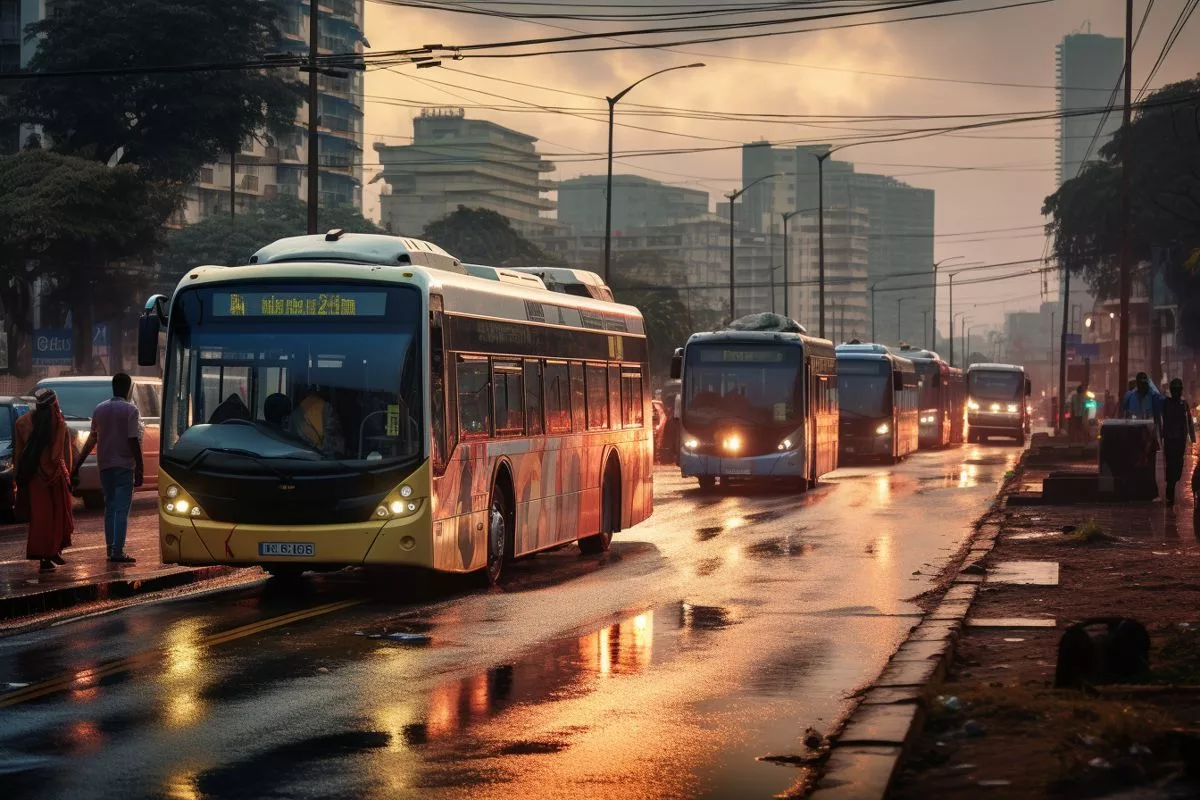The rise of electric vehicles in the automotive world has the potential to revolutionize transportation worldwide, especially in sub-Saharan Africa. Roam, a Kenyan electric transport enterprise, offers a solution to Nairobi’s traffic congestion and air pollution by innovating e-motorbikes and buses specifically suited to African terrain. Roam’s model provides practical alternatives and builds a more cohesive public transport network, making it a potential model for sub-Saharan Africa’s sustainable, efficient, and clean transportation future.
The International Energy Agency reported in 2022 that 10% of passenger vehicles sold globally were electric, marking a tenfold increase from five years prior. This significant rise in electric vehicles has the potential to revolutionize the transport industry worldwide, particularly in sub-Saharan Africa.
Promising Prospects for Low-Emission Transportation
Sub-Saharan Africa is blessed with abundant solar energy, which makes the development of cost-effective and low-emission transportation a promising prospect for the region. Besides the environmental implications, this evolution can also enhance the air quality in urban areas.
A Potential Solution for Nairobi’s Traffic Congestion and Air Pollution
Nairobi, Kenya, is ranked as the fourth most traffic-congested city in the world, with dangerously high levels of air pollutants. However, Roam, a Kenyan electric transport enterprise, offers a solution to revolutionize African transportation.
Tailored for African Conditions
One of the primary reasons why electric vehicles have been elusive in Africa is that most models are not tailored for African conditions. Public transport is predominant over private vehicles, and the infrastructure includes unsurfaced roads prone to developing potholes. Roam Electric has innovated its offerings by designing e-motorbikes and buses specifically suited to African terrain, providing economical and efficient solutions.
A Practical Alternative for Nairobi’s Inhabitants
Roam’s e-motorbikes and buses provide practical alternatives for Nairobi’s inhabitants. The e-bikes offer a more comfortable ride and can reduce drivers’ expenses in half, making them ideal for Boda Boda taxi drivers. For the 43% of Nairobians who rely on public transport, Roam’s electric buses, ‘Roam Move,’ and ‘Roam Rapid,’ are building a more cohesive public transport network, extending their reach to more rural areas.
A Model for Sub-Saharan Africa
Roam Electric’s model holds immense potential for replication and adaptation across Sub-Saharan Africa, marking a critical juncture in the region’s transportation history. This refashioning of public transport, powered by the abundant solar energy in the region, could be the key to unlocking a sustainable, efficient, and clean transportation future for Africa.
1. What is Roam and what does it offer in terms of transportation?
Roam is a Kenyan electric transport enterprise that offers practical solutions to Nairobi’s traffic congestion and air pollution by innovating e-motorbikes and buses tailored for African terrain.
2. How can the rise of electric vehicles revolutionize transportation worldwide?
The rise of electric vehicles has the potential to revolutionize the transport industry worldwide, particularly in sub-Saharan Africa, by offering cost-effective and low-emission transportation options that can enhance air quality in urban areas.
3. Why have electric vehicles been elusive in Africa, and how has Roam Electric innovated to address this issue?
Most electric vehicle models are not tailored for African conditions, including the predominance of public transport over private vehicles and infrastructure that includes unsurfaced roads prone to developing potholes. Roam Electric has innovated its offerings by designing e-motorbikes and buses specifically suited to African terrain, providing economical and efficient solutions.
4. How does Roam Electric’s model provide a practical alternative for Nairobi’s inhabitants?
Roam’s e-motorbikes and buses provide practical alternatives for Nairobi’s inhabitants. The e-bikes offer a more comfortable ride and can reduce drivers’ expenses in half, making them ideal for Boda Boda taxi drivers. For the 43% of Nairobians who rely on public transport, Roam’s electric buses, ‘Roam Move,’ and ‘Roam Rapid,’ are building a more cohesive public transport network, extending their reach to more rural areas.
5. Can Roam Electric’s model be adapted across Sub-Saharan Africa?
Roam Electric’s model holds immense potential for replication and adaptation across Sub-Saharan Africa, marking a critical juncture in the region’s transportation history. This refashioning of public transport, powered by the abundant solar energy in the region, could be the key to unlocking a sustainable, efficient, and clean transportation future for Africa.








